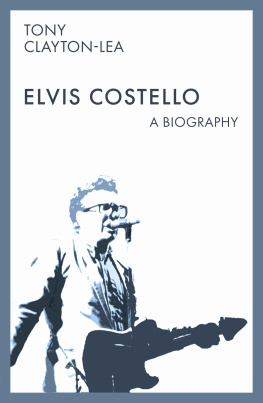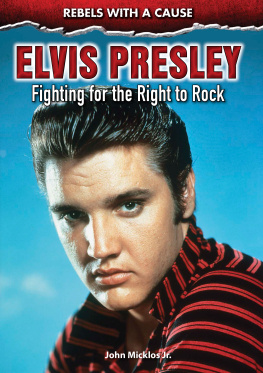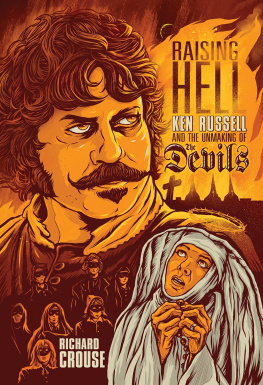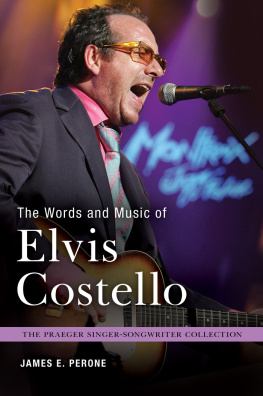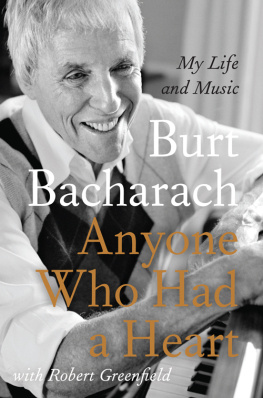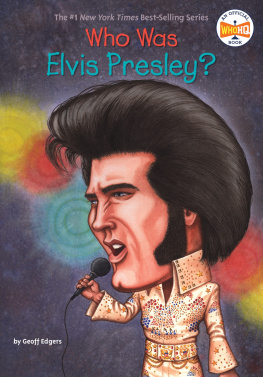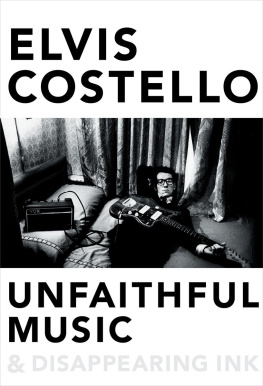Elvis Costello:
A Biography
Tony Clayton-Lea
Copyright Tony Clayton-Lea, 1998
Tony Clayton-Lea has asserted his rights under the Copyright, Design and Patents Act, 1988, to be identified as the author of this work.
First published in 1998 by Andr Deutsch.
This edition published in 2019 by Lume Books.
Cover Design Lume Books.
Digital illustration derived from Elvis Costello, 1980 , photographed by Braunov.
Table of Contents
Chapter 1
The only two things that matter to me, the only motivation points for me writing all these songs, are revenge and guilt. Those are the only emotions I know about, that I know I can feel. Love? I dunno what it means, really, and it doesnt exist in my songs .
Elvis Costello, talking to Nick Kent, NME , August 1977
I said that more for effect. When youre confronted by a 35-year old hippie asking you what the difference is between Punk and New Wave you tend to say things like that. I was just trying to irritate, you know?
Elvis Costello talking to Paul Rambali, The Face ,
August 1983
Most of the punk bands couldnt play in time. So it was just cacophony that didnt mean anything. Whereas The Attractions could actually get on with the thing and make it musical. Plus we were really horrible to people In fact, we were much nastier than any of those groups. In fact, all of them put together .
Interview with David Wild, Rolling Stone , June 1989
At the time few could have guessed that Elvis Costello, one of the finest songwriters in the history of rock music, would have been spawned in the miasma of punk rock. In retrospect, of course, the natural evolution from pigeon-toed punk to the embodiment of musical eclecticism makes perfect sense, but in 1976 it would have made no sense at all.
While the musical influence of punk rock is negligible, the individualistic attitude that informed it has inspired millions. The word soon spread from the cities to the suburbs from London to Whitton in Middlesex, where a songwriter called Declan Patrick MacManus sat in his bedroom writing songs of biting hurt and bitter humour. Contacting record companies. Being humiliated. Biding his time
1976 was unkind to traditional singer/songwriters, especially in the UK. Sensitive, bedsit-angst merchants like Joan Armatrading, Clifford T Ward, Cat Stevens and Al Stewart were looked upon by the rock music press and its readers with as much indifference, antipathy even, as those at the opposite musical extreme, Yes, ELO and Pink Floyd. The London-based cognoscenti, the self-appointed arbitrators of taste, had new fish to fry and new ways in which to dish up the lip-smacking morsels.
This indifference was distinctly English, even though the musical influences behind it were American. The diehards of the more commercially-oriented North American branch of the singer/songwriters union (notably old hand Bob Dylan, new kid Bruce Springsteen, Paul Simon, Joni Mitchell, Leonard Cohen and Neil Young) still reigned supreme, with their credibility intact. Dylan had released Blood On The Tracks , The Basement Tapes and Desire in an eleven-month period from February 1975 to January the following year, and so at the time was critically unassailable. In 1975, Springsteen released Born To Run , Simon Still Crazy After All These Years , Mitchell The Hissing Of Summer Lawns and Young both Tonights The Night and Zuma . Leonard Cohen was, as usual, missing in action, practising Zen and the art of making records whenever the mood took him. Other US singer/songwriters, either in solo capacity or within the structure of a band (John Prine, James Taylor, JJ Cale, Carole King, the Band, Little Feats Lowell George among them) continued to make records.
The literacy of the US hierarchy, occasionally surreal but more often than not purely commercial in its aim, was further smoothed out by the music itself. By and large this was dominated by session players, and therefore lacked a certain spontaneity. Dylan and Young were honourable exceptions. Although influenced by the Americans, the new British breed of singer/songwriter turned away from the pursuit of perfect sound, preferring instead to make their point with a fistful of acoustic strums and a headful of cynicism.
The catalyst was pub rock a phrase credited by some to Time Outs then music editor, John Collis. One of the scenes mainstays, Kokomo, was actually drafted in by Dylan who at the time could tell which way the tide was turning for the initial Desire sessions. In his view, though, the English band seemed to lack the right spirit for the job in hand.
Ironically, the pub-rock scene was initiated by an American band called Eggs Over Easy. At the fag end of Spring 1971, they had arrived in London from New Yorks Greenwich Village to make a record with Chas Chandler, former Animals bassist and ex-Jimi Hendrix manager. Following contractual difficulties, the band grew tired of studio-bound work and, eager to flex their musical muscles, walked into a pub near their house in Kentish Town, The Tally Ho, and secured a Monday-night residency. This grew to four nights a week by the end of the year.
We were basically a trio. Austin de Lone told Mojo magazine. I guess you could say we were a loose rockin unit, with a countryish tinge. Joined by a colleague of Chandlers Animals drummer John Steel the bands set comprised original songs and a judicious selection of crowd-pleasing cover versions. Aside from appearing at The Tally Ho, Eggs Over Easy also played at more established venues such as The Marquee. It was here that they met Irishman Dave Robinson, who managed Brinsley Schwarz. This band had endured an initial hype that fell apart hilariously Robinson secured them a down-the-bill spot at Fillmore East, and flew a planeload of journalists out to see them. By the time the party arrived at the gig, after endless delays, they were too late to see the band. The Brinsleys were now living in a communal set-up in Northwood, Middlesex, more out of lack of finances than domestic emulation of The Monkees.
Inspired by the Eggs Over Easy one-take human-jukebox approach to songs, Brinsley Schwarz member Nick Lowe quickly began to write roughnready songs. Soon, Eggs Over Easy were influencing more than Lowe. At first it was a groovy little thing, Lowe recalled in Mojo , rather Hogarthian, with snotty-nosed urchins hanging around the door and a Sikh bus driver doing a wild frug-a-gogo routine. But within a few weeks it was getting discovered by the clique, the beautiful people.
The Tally Ho was descended on by throngs of people eager to hear the American band. People would shout out the names of songs they wanted to hear and the band would play them. So it was that Brinsley Schwarz began to play at the pub, happy in the knowledge that their abortive attempt at premier league success was forgotten, and that a bit of credibility started to come our way.
As Eggs Over Easy flew back to the US, new groups began to filter through. Consisting of working musicians (regularly comprising a smattering of Irishmen, due to Dave Robinsons Murphia connections), eager for the dosh and free beer for the night, the bands included Bees Make Honey, Ducks Deluxe, Kilburn And The High Roads, Roogalator, Help Yourself, Clancy, Chilli Willi and the Red Hot Peppers, Ace and The Winkies.
The new bands needed more places to play, however, and gradually other pub venues were made available to them, creating a gig circuit that enabled them to move around London on a nightly basis. Previously playing host to jazz, folk, and country & western outfits, the likes of the Hope & Anchor, The Kensington, The Cock Tavern and The Lord Nelson became the breeding ground for a motley assortment of jobbing musicians with an anything-goes attitude and an unpretentious approach to stagecraft.
Every scene needs some kind of glue to bond it together for more than the requisite few months, though. In this instance, it was Charlie Gilletts Honky Tonk radio programme. Broadcast each Sunday morning on BBC Radio London, the shows gig guide acted as a rallying call for denizens of the pub-rock scene, and by mid-1973 the pubs could hardly cope with the demand. As the scene grew, so did its fanbase generally speaking, ordinary music lovers who had become increasingly weary of the musical and on-stage excesses of the current rock bands. Glam rock was too poncy for them, Krautrock was too avant-garde, and US rock was too smooth. In pub rock (and in its genuine offspring, punk rock), the punter was in cahoots with the music, eyeballing the lead singer and the guitarists, smelling the body odour, stepping on the butt ends, and wiping the spilt lager from his jacket. The regrouping of a bunch of middle-class ex-mods whod been through the hippy underground scene and realised it wasnt their cup of tea, is how Nick Lowe described the scene.
Next page
